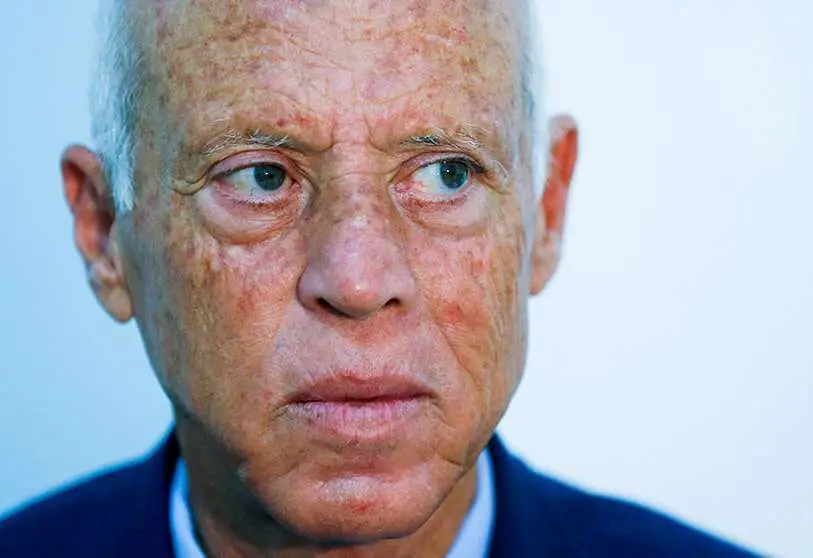Superpowers for Kais Saied

Approved by 94.6% of the votes cast by only 30.5% of the electorate, according to the Independent Higher Instance for Elections (ISIE), Tunisia's new constitution is undoubtedly a tailor-made suit for President Kais Saied. The powers granted to him by the new basic law make his regime hyper-presidential, once the counter-powers to his omnipotent will have been eliminated.
The president, who appeared in the early hours of the morning to respond to the hundreds of demonstrators who showed their support for him, said that "Tunisia is entering a new phase. This constitution will allow us to move from a desperate situation to the light of hope," he proclaimed to his cheering supporters.
For that to happen, Kais Saied will have a free hand to revive the country's ailing economy, reverse the staggering unemployment figures and halt, of course, the spiralling increase in poverty. Free hands, without parliamentary obstacles of any kind, since the new Constitution uproots the parliamentary system established in 2014 by giving the president powers almost equivalent to those of an unquestionable god: he cannot be dismissed for any reason, but, on the other hand, he enjoys all the prerogatives to choose his head of government and all the members of the Council of Ministers, whom, for the same reasons of his supreme will, he can also dismiss whenever and however he wants.
Although legislative power is not - of course - abolished, parliament will vote on the laws that the president considers to be priorities. It can be predicted that such approvals will be by majorities that are as absolute as they are overwhelming. And, in order to avoid hypothetical outbursts of resistance among the deputies, the current Assembly of Representatives will be accompanied by a second Chamber, called the Chamber of the Regions, which is given the role, at least theoretically, of acting as a counterweight to the first.
The main opposition to the president's plans, now consummated by referendum, the National Salvation Front (FSN), which includes the Islamist movement Ennahda, has delegitimised the referendum on the basis of the low voter turnout, claiming that "three-quarters of the country has refused to approve the coup process launched a year ago by Kais Saied".
According to dispatches from Agence France Press, the jurist Sadok Belaid, who was in charge of writing the first draft of the new constitution, has also joined in the criticism. He has now harshly criticised its final wording, saying that it "opens the way to a dictatorial regime".
US State Department spokesman Nick Price warns that the new constitution does not sufficiently guarantee the rights and freedoms of Tunisian citizens: "The countervailing power mechanisms it includes are so weak that they may seriously compromise the protection of human rights and fundamental freedoms".
It does not seem that such criticism will make any impression on the Tunisian president, now legally endowed with the superpowers he has been accumulating since he dismissed the prime minister exactly one year ago, on 25 July 2021, then froze the parliament's activity and finally dissolved it last March.
Having become not only de facto but also legally Tunisia's strongman, he will not be able to make any excuses if he fails in his plan to "put an end to the mess in the government" of the country and pull it out of the crisis and galloping impoverishment into which it had plunged. And, incidentally, to disprove or corroborate the sinister prophecies and concerns of both Sadok Belaid and the chancelleries of Europe and the other side of the Atlantic.

